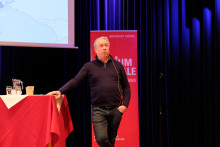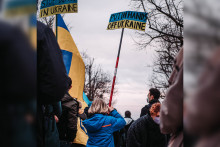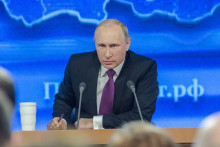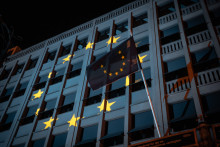The development of a war is difficult to predict, and this war is no exception, according to Donnelly. ‘In general you can outline expectations, but the details are another story.’ This week terrible images of Bucha - a suburb of Kiev - surfaced. Bodies of dead civilians were lying in the streets everywhere, sometimes with their hands tied. Authorities also found mass graves and the first stories of systematic rapes also surfaced. ‘The New York Times and Bellingcat provided evidence for the authenticity of the images. Russia denied having anything to do with it, but that is clearly not true’, says Donnelly.
Tip of the iceberg
Despite the horrors seen in the footage, it surprises Donnelly little. Or not at all, even. ‘I also mentioned it in your Q&A last week: look at what Russian soldiers did in the past. In Grozny, Donbas, Syria and to a lesser extent Georgia. This is a Medieval, old school approach to war that makes no distinction between soldiers and civilians. They are slaughtering the population and literally showing that they are fucking them. These are war crimes that disregard modern international humanitarian law and human rights, but Russia doesn’t abide by that.’
Donnelly fears - or even dares to say with certainty - that the images from Bucha are only the tip of the iceberg. According to him, the same thing is likely happening in occupied territories in the east and south, but there is little or no visibility. In his opinion, the images from Bucha bring the war to a different phase. ‘This is huge. Two weeks ago, political leaders were concerned about Joe Biden's statements calling Vladimir Putin a butcher and a war criminal. But now other countries think the same way. That means new sanctions are not only needed, but are becoming more likely.’
According to Donnelly, the images from Bucha require tough action, although he believes many countries are not ready to do so. ‘Ukraine’s civilians need protection. This means Western peacekeepers, military protection, field hospitals, medical support and medical personnel in Ukraine itself. This is dangerous, but preventing future atrocities should feel like a natural obligation for governments. The images from Bucha call for more aggressive actions.’ This might provoke a Russian attack, but to date the war is largely being fought on the ground. Russia deliberately does not deploy many aircraft because they are afraid they will be shot out of the sky. Sadly, he thinks Western governments are not yet ready to take this step, focusing on more aggressive sanctions instead.
Kyiv
At this stage of the war, Donnelly struggles to see bright spots. The fact that Russian troops are withdrawing from Kyiv, for example, he says, is good for Ukraine’s capital city, ‘but the question is what the impact will be on other parts of the country. You could say that the north is getting a little bit more air, but if you saw the expression in Volodimir Zelensky's face in Bucha, you know that you can’t say that means relief.’
The researcher expects and fears that the next phase of the war will focus on Mariupol, the port city in the southeast with just under half a million inhabitants. A city that has been under heavy fire for weeks and suffers from severe water and food shortages. Conquering that city is of such great importance to Russia to completing their conquest of the southeast of Ukraine. But I'm afraid they're going to raze Mariupol completely to the ground. And I mean totally flat, finish it. Then Russia can exert complete control of that area, and turn back to the rest of the country.'







